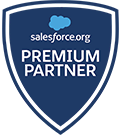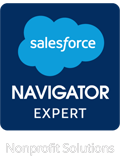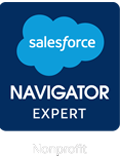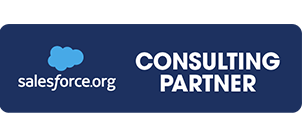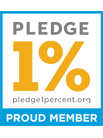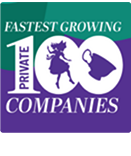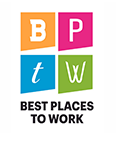How the Fund for Public Health in NYC Uses Salesforce to Manage Complex Relationships
The Objective
Almost every organization has at least this one thing in common: data. Businesses, nonprofit organizations, government agencies — no matter small or large — all generate data, and we all use it to make informed decisions or take action.
But one part of the struggles with data is recognizing what’s useful to your organization and how best to collect it. Another is reporting on that data — reading it, analyzing it, and acting on it.
Nora Landis-Shack, the Manager of External Relations at the Fund for Public Health in NYC (FPHNYC), knew her organization had plenty of rich data. But what she and her team realized was that for it to be really useful, they needed a better way to search, report on, and draw connections among the data.
The Problem
FPHNYC operates in a unique space. They’re a nonprofit organization that facilitates public-private partnership between the New York City Department of Health and Mental Hygiene and private philanthropy to support innovative public health projects. FPHNYC raises funds to expand and test pilot projects, support agile implementation, and report on successes, which can be scaled and implemented across New York City. Since 2002, they’ve raised $450 million in public and private funding, and have managed over 350 projects.
Over the last 18 years, FPHNYC had generated massive amounts of data, and were previously using a combination of Raiser’s Edge and Excel spreadsheets to manage it. But when joining the organization in 2018, Nora struggled to understand and track the many connection points among the data, and realized that their current system made it difficult to do so. FPHNYC’s work is tied to certain project areas, like tobacco control, maternal health, or sodium-intake reduction. In the previous system, there was no way to directly search for donors, grants, or projects by the project area. This made it difficult, for example, to clearly see all the funders associated with a specific project, which is essential for the team’s research and partnership development. In addition, the old system wasn’t particularly user-friendly, making it challenging to consistently enter data.
FPHNYC needed a database that was more flexible, one that could track relationships among different types of records and provide powerful search capabilities across those relationships.
The Solution
FPHNYC decided to migrate to Salesforce, and they partnered with Idealist Consulting to help customize and implement the system because of our unique approach to project management that combines Agile and Waterfall methodologies.
Idealist Consulting helped set up a system that would track different types of records — for funders, projects, department bureaus, and initiative types. This system allows FPHNYC employees to search by category and find records related to one another by that category. The team can search for tobacco control and pull up all the organizations that had funded previous work to control tobacco use.
Nora says she and her colleagues came to this project with many Salesforce optimization requests they thought would be impossible to facilitate, but David, the Salesforce Architect they worked with, was able to quickly address them all. “We came into the project thinking that a lot of what we were asking for was complicated and unique to us specifically. But working with Idealist, we realized that these were very reasonable things to ask for. Not only that, but they built many of our customizations so quickly and intuitively.”
The Result
While the COVID-19 outbreak has impacted how FPHNYC works and has shifted their projects to respond to the epidemic, they continued to adapt Salesforce. The outbreak changed many of their immediate priorities, but the team was able to use Salesforce to track their new efforts, the donors they were reaching out to, and the relief funds and COVID-related support they wanted to leverage. They were able to take quick action in an unanticipated moment.
Now, the team at FPHNYC works in Salesforce consistently, and Nora thinks they are in a much healthier place after their migration to Salesforce in terms of both data and organizational security. “If everyone on our development team were to disappear tomorrow or not be able to come into work for whatever reason, somebody would still be able to log in and understand what we’ve been working on, what needs to happen, and what’s coming down the pipeline. Having that institutional record of truth, with the data accessible to all members of the team, is just another of the priceless benefits in switching over to Salesforce.”
Have complex relationships like FPHNYC you need to manage? A consultant could help figure out how to make Salesforce work best for you.










